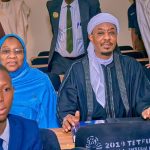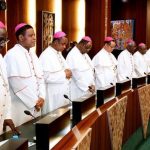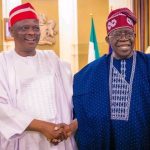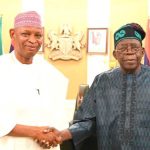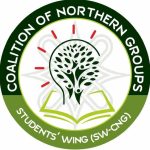The Independent Corrupt Practices and Other Related Offences Commission (ICPC) says it will deepen collaboration with Nigeria’s disability community to tackle corruption, end discrimination and promote equal opportunities.
This was contained in a statement signed by Demola Bakare, Director, Public Enlightenment and Education/Spokesperson for the Commission, on Wednesday in Abuja.
Bakare said the commitment was restated during a strategic partnership meeting between the ICPC and the Pioneers Ad Hoc Consortium of Nigeria’s Disability Civil Rights Movement.
According to him, ICPC Chairman, Dr. Musa Adamu Aliyu, SAN—represented by the Commission’s Secretary, Mr. Clifford Oparaodu—told the delegation that the Commission operates an inclusive recruitment policy and already has persons with disabilities in its workforce.
“ICPC does not discriminate in its recruitment or operations. We treat every verifiable petition on its merit, irrespective of the petitioner’s background or vulnerability,” Oparaodu was quoted as saying.
Bakare added that the Commission welcomed proposals from the disability consortium and expressed readiness to work together on initiatives such as tackling corruption in disability-focused institutions, strengthening whistleblower engagement and improving accessibility.
He said Lady Omotunde Ellen Thompson, Co-Founder and Chairperson of the Joint National Association of Persons with Disabilities (JONAPWD), outlined major challenges facing the community, including corruption, systemic neglect and structural barriers.
“She commended ICPC for its professionalism, empathy in pursuing justice and physical support during court proceedings, but urged the Commission to do more to ensure dignity, protection and fairness for persons with disabilities,” the statement read.
Thompson also called for the creation of a Department of Veteran Affairs to address the welfare of law enforcement officers and persons with disabilities, timely salary payments, healthcare access and better protection to curb insecurity and social unrest.
Her proposals, Bakare noted, included appointing a dedicated desk officer for disability matters, introducing specialised training programmes, auditing donor funds for disability projects, and ensuring inclusive, accessible policymaking dialogues.
Bakare said the association presented a formal petition and proposed a Memorandum of Understanding (MoU) to formalise collaboration with the Commission.
He quoted Oparaodu as saying: “We are excited about the possibilities of this partnership and are determined to make sure it delivers real results for the disability community.”

